April 17, 2019 – Assoc. Prof. Dr. Ruslinda was invited by AIMST University to share knowledge in nanotechnology. Technical Talk on Nanotechnology was organized by the Faculty of Engineering and Computer Engineering.
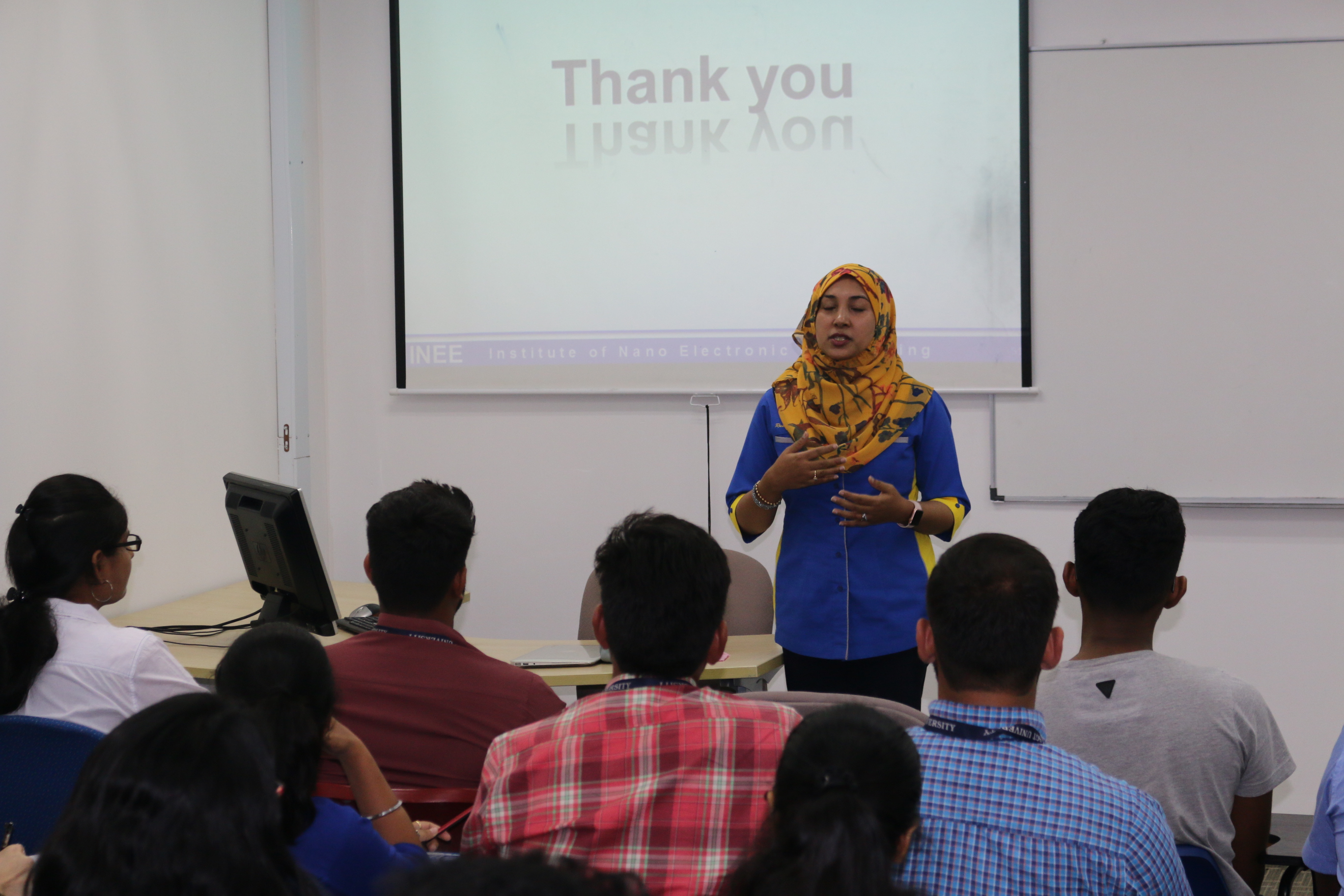

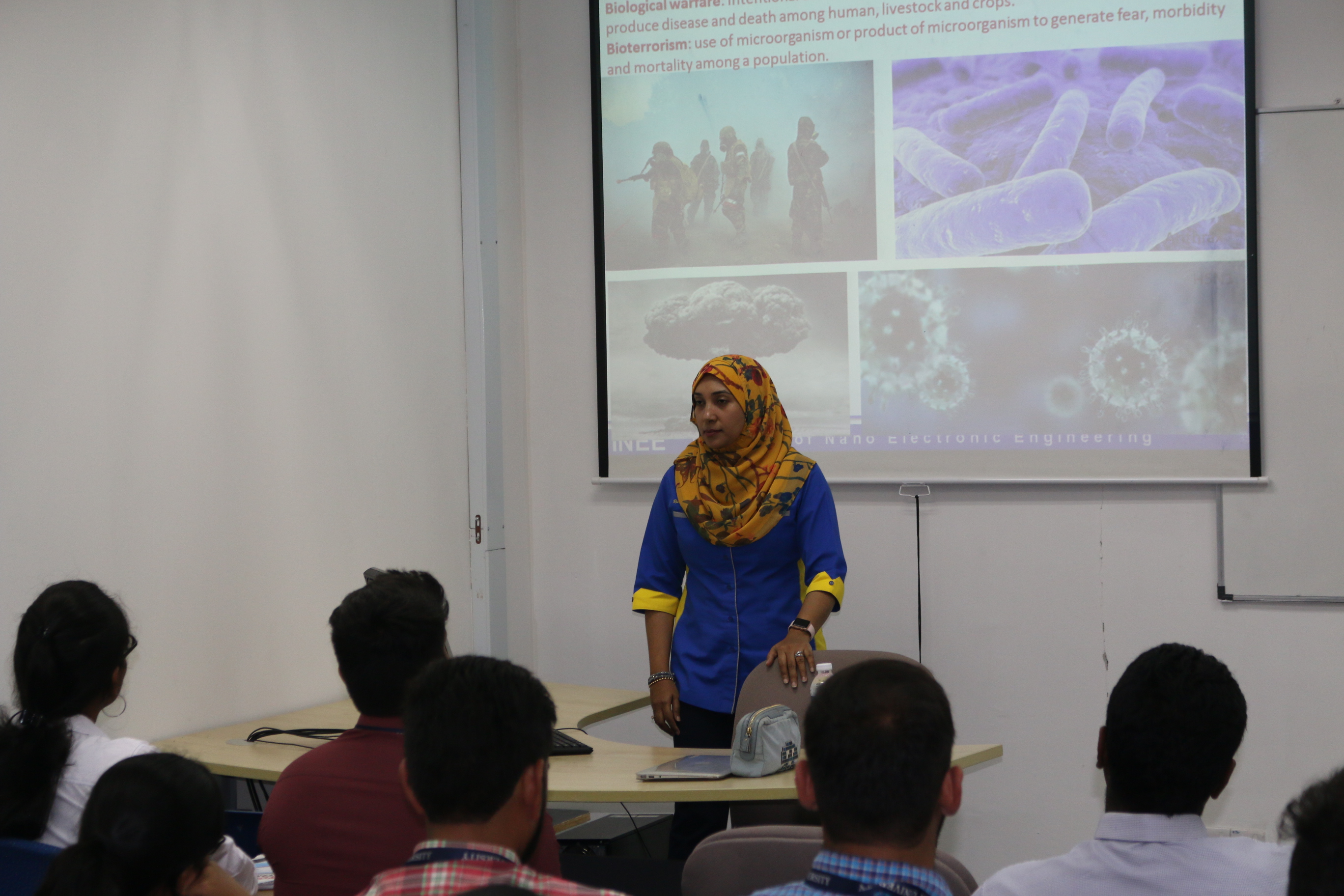

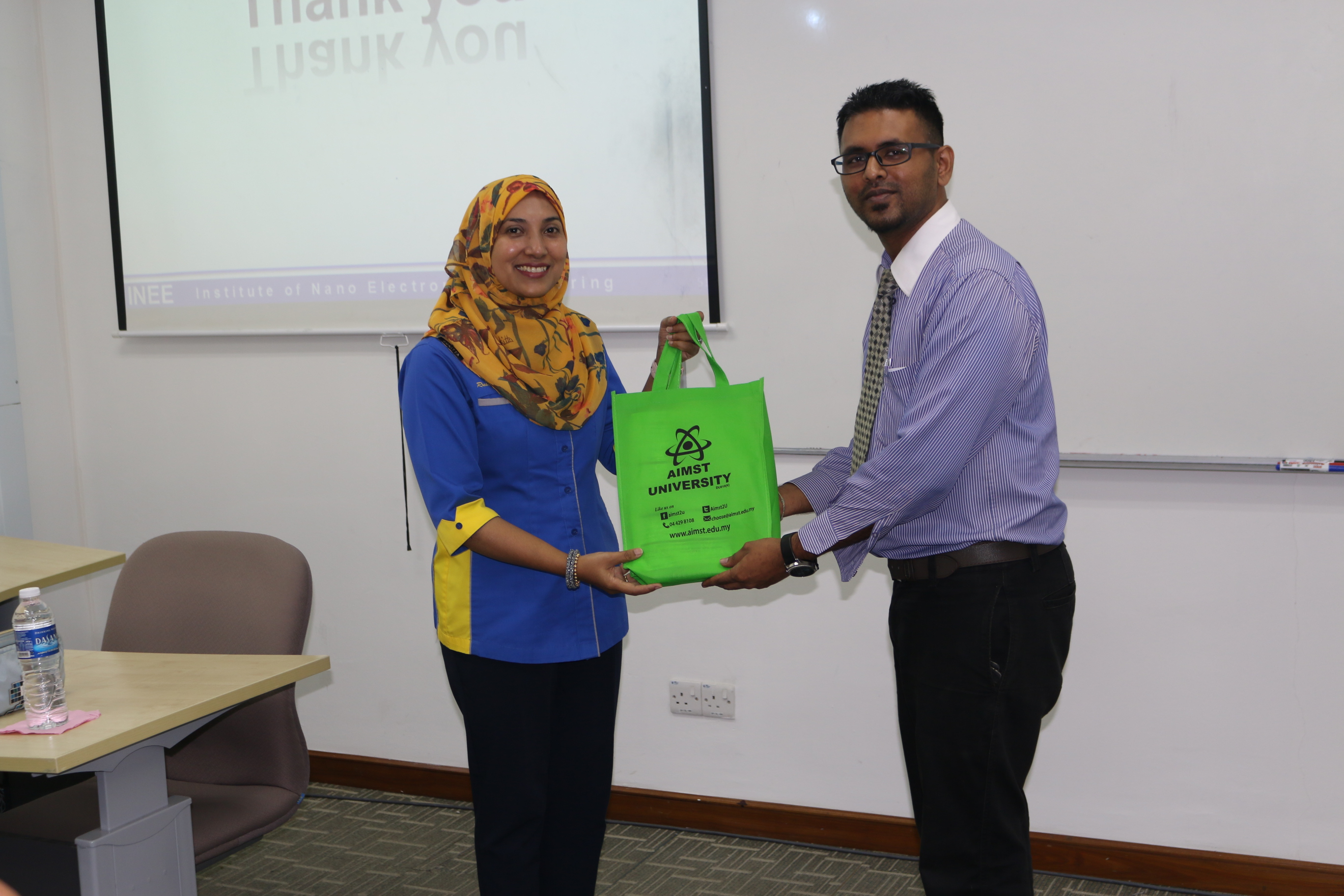

Institute of Nano Electronic Engineering
Universiti Malaysia Perlis
By Editor
April 17, 2019 – Assoc. Prof. Dr. Ruslinda was invited by AIMST University to share knowledge in nanotechnology. Technical Talk on Nanotechnology was organized by the Faculty of Engineering and Computer Engineering.






By Editor
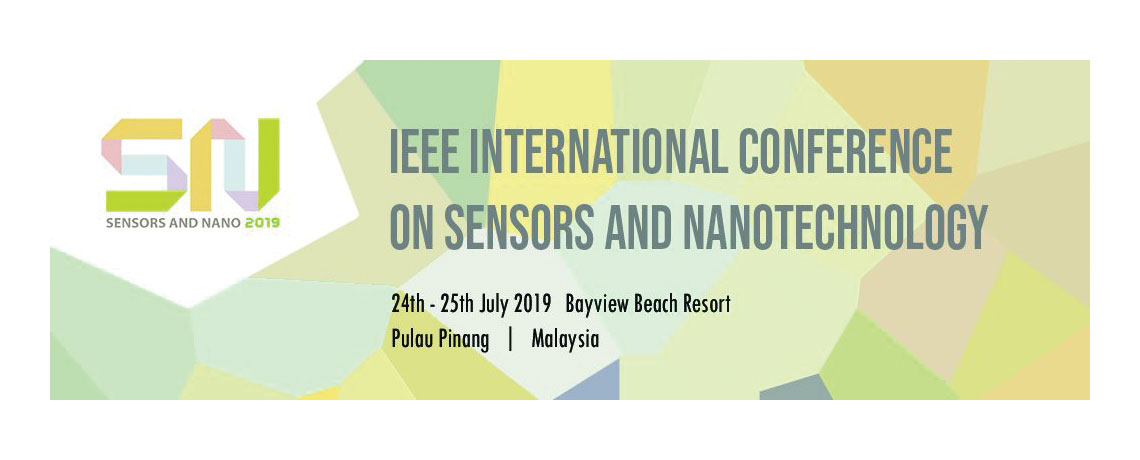
It is our great pleasure to announce that the IEEE Malaysia Section Sensors and Nanotechnology Joint Councils Chapter (SEN39/NANO42) will be organizing the IEEE International Conference on Sensors and Nanotechnology (SENSORS AND NANO 2019) on 24th and 25th July 2019, at Bayview Beach Resort, Penang, Malaysia. The conference provides a platform for presentation, discussion, and exchange of state-of-the art information including the latest research and development in sensors and nanotechnology related fields.
The topics, arranged into tracks, include but are not limited to:
NANO TRACK:
NT 1: Nanomaterials and Nanodevices
NT 2: Properties, Fabrication and Applications of Interest Materials
NT 3: Special Applications of Nanotechnology
NT 4: Nanofabrication, Nanostructures and Nanosystems
SENSORS TRACK:
ST 1: Sensor Materials and Architectures
ST 2: Emerging Sensor and Machine Learning Applications
ST 3: Internet of Things, Wireless Sensor Networks, Architectures and Applications
ST 4: Energy, Environment and Green Technology
All accepted papers will be published in the conference proceedings and will be recommended for publication in IEEE Xplore (Indexed by SCOPUS and The Conference Proceedings Citation Index (part of Web of Science)).
For more details, please visit our website: https://sensorsandnano2019.ieeemy.org
By Editor
Abstract – Malaysia has started it own micro-technology and nanotechnology development since the early millennium year of 2000 and arise until this day. Some key plans have proven effective and others fairly not. Status about strategies and practices planned in Malaysia with some relevant finding through experiences in industries collaboration observations and UniMAP involvement in nanotechnology are presented in this paper. Some suggestion and ideas are also presented.
Keywords – Nanotechnology, R&D, Industry, Strategy, Practice, Malaysia.
Corresponding Author: Prof. Dr. Uda Hashim
Corresponding Author’s Email: uda@unimap.edu.my
Full text: PDF
By Editor
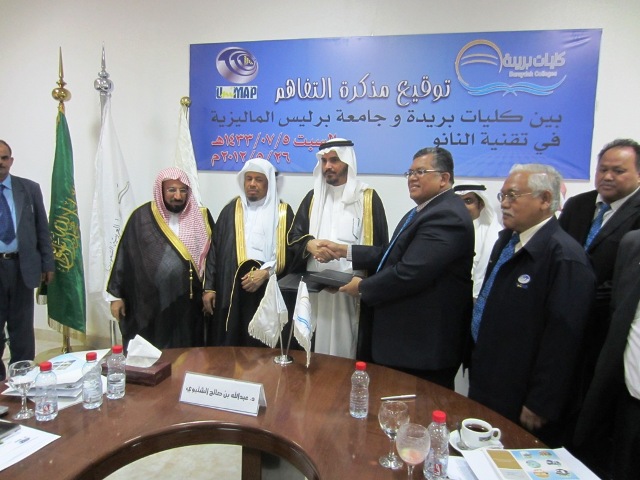
Universiti Malaysia Perlis (UniMAP) has forged strategic cooperation with three universities in Saudi Arabia to empower the fields of nanotechnology, biomedicine and microelectronic engineering.
The signing of the memorandum of understanding (MoU) with Buraydah College was held at a ceremony, two days ago, at the institution which is located in Buraydah, the administrative city of the Al Qassim province.
UniMAP was represented by Vice-Chancellor Prof Datuk Dr Kamarudin Hussin while Buraydah College was represented by Chancellor, Dr Abdullah Al Shetaiwi, at the signing.
The event was witnessed by Malaysian Ambassador to Saudi Arabia, Datuk Syed Omar Al Shagoff, and UniMAP board of directors chairman Tan Sri Dr Zainul Ariff Hussain.
Dr Kamarudin said UniMAP chose Buraydah College as it was regarded as capable of forming and outlining an academic and research partnership which would develop its microelectronic engineering curriculum, especially in nanotechnology.
The partnership also includes an exchange programme involving students and staff.
Buraydah College, which was established in 2009, is the best private higher learning institution in Al Qassim which focuses on core fields such as engineering, medicine and pharmacy.
“This is the best move to make UniMAP competitive and known at the international level, which includes specialising in nanotechnology,” said Dr Kamarudin here today.
UniMAP and Buraydah College will work to develop an academic curriculum for nanotechnology, as well as turn UniMAP’s laboratory as a centre for training and practical students.
Meanwhile, UniMAP also fostered a relationship with the King Saud University (KSU) in Riyadh with focus on cooperation in the same fields.
KSU is among the best and oldest universities in Saudi Arabia.
The MoU finalising the partnership took place in Riyadh, and as a result, UniMAP will begin a biomedicine programme in September this year, or early next year.
Dr Kamarudin said KSU had also agreed to collaborate on research in optics, which will be headed by the Dean of UniMAP Research Management and Innovation Centre, Prof Dr Syed Alwee Al Junid Syed Junid.
Another Saudi Arabian university, the Al-Farabi College in Jeddah, has expressed interest in working with UniMAP to develop the engineering and biomedicine curriculum.
Both parties signed a letter last week, stating intent for a partnership. – Bernama
Institute of Nano Electronic Engineering, Universiti Malaysia Perlis
Lot 106, 108 & 110, Blok A, Taman Pertiwi Indah,
Jalan Kangar-Alor Setar, Seriab 01000 Kangar, Perlis, Malaysia
Tel: +604-979 8581 Fax: +604-979 8578 Email: webmaster.inee@unimap.edu.my